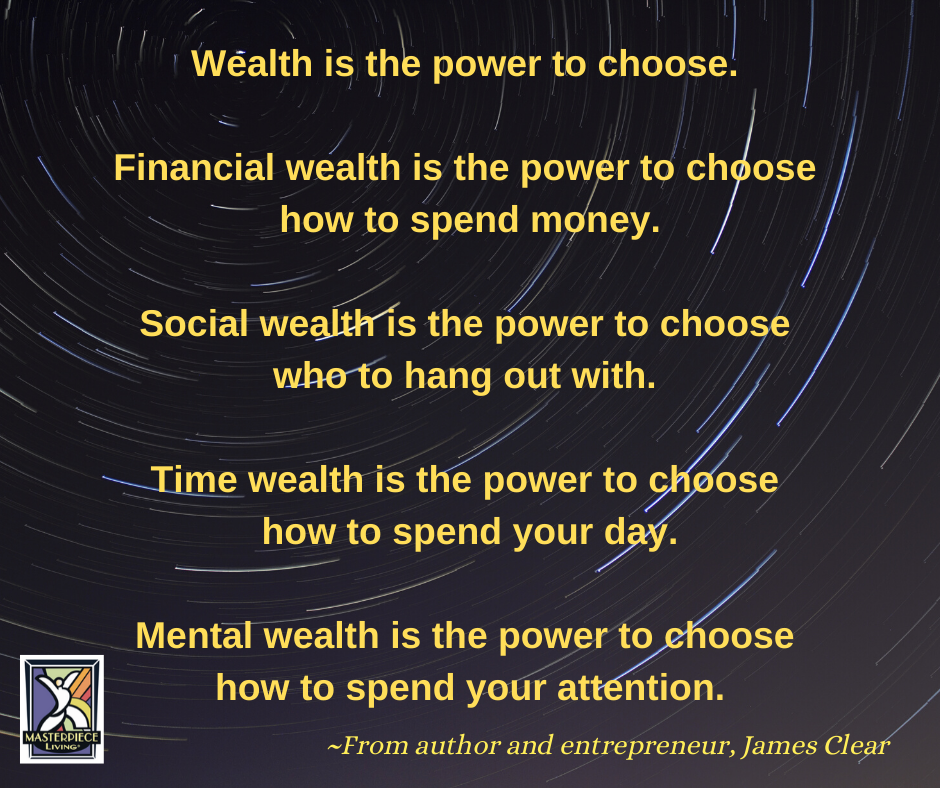 By: Dr. Roger Landry, Teresa Beshwate, and Danielle Palli
By: Dr. Roger Landry, Teresa Beshwate, and Danielle Palli
There’s an old Cherokee proverb you might have heard about. A grandfather tells his grandson that within each person, there is a battle between two wolves. One wolf is negative and filled with anger, envy, sorrow, regret, greed, arrogance, self-pity, resentment, guilt, inferiority, and ego. The other is positive and filled with joy, peace, love, hope, kindness, empathy, compassion. The grandson asked, “Which one wins?” To which his grandfather replied, “the one you feed.”
Our Negativity Bias
Everyone is experiencing loss during this time. Loss is part of the human condition, particularly as we age, but now that grief we are feeling seems more pronounced. We humans have a negativity bias that we inherited from our ancestors as a survival trait. For example, is that a rock in the distance or a lion? We’d better expect the lion, or we’re not likely to survive for very long. So, yes, we can be negative – those feelings are normal. However, life doesn’t have to be just about loss. As long as we have a pulse, we can continue to grow. We can be mindful and deliberately focus on the positive.
The Dangers of Feeding the Wrong Wolf
 Negative emotions and fear cause us to hyper-focus and limit our options. Once again, think of that charging lion. Any input other than “escape” is useless to us. However, what happens when you make money your lion?
Negative emotions and fear cause us to hyper-focus and limit our options. Once again, think of that charging lion. Any input other than “escape” is useless to us. However, what happens when you make money your lion?
With a scarcity mindset over something such as money, anxiety can cause us to hyper-focus on the problem, causing us to limit our options and reduce all risks (even ones that could lead to growth, such as investing or going back to school to further one’s career). We look in the short-term and lose sight of potential abundance in the long run. But what happens if we feed the other wolf – the one coming from a place of abundance?
For example, do you know what General Electric, General Motors, IBM, Disney, HP, Hyatt, Trader Joe’s, FedEx, Microsoft have in common? They were all started during a recession. And Facebook, Sales Force, and Google were all launched right before economic meltdowns. Those leaders saw opportunity when many others were spinning in a scarcity mindset. We can choose that for ourselves, too.
We can regret not having saved more for times of financial difficulty, or we can use this as an opportunity to plan for the future – how we save and how we spend. It is estimated that we spend two-and-a-half times ruminating on a negative event vs. a positive one (there’s that negativity bias again). So, if money is a source of stress, then every time we think of it, instead of it bringing us joy (I’m earning a living. I am grateful that I have what I need), it’s a place of negativity and self-limiting possibilities (I don’t have enough. This is hopeless.) And, this mindset doesn’t apply to just money, but all areas of our lives.
A Scarcity Mindset vs. a Mindset of Abundance
 There’s nothing like a pandemic to spark feelings of scarcity … scarcity of food and supplies; scarcity of helpful information; scarcity of money; scarcity of work, scarcity of time, and scarcity of much-needed social interactions with loved ones. Yes, we might have lots of circumstances that put us into a scarcity mindset. It’s easy to think that our circumstances directly create our sense of scarcity, but actually feelings of scarcity or abundance are created in our minds.
There’s nothing like a pandemic to spark feelings of scarcity … scarcity of food and supplies; scarcity of helpful information; scarcity of money; scarcity of work, scarcity of time, and scarcity of much-needed social interactions with loved ones. Yes, we might have lots of circumstances that put us into a scarcity mindset. It’s easy to think that our circumstances directly create our sense of scarcity, but actually feelings of scarcity or abundance are created in our minds.
There is a protective shield between our circumstances and our feelings – and that is our thoughts. Our thoughts are our superpowers. We can only feel scarcity if we choose thoughts that produce feelings of scarcity. Or, we can choose other thoughts, that still feel true to us, but create a different feeling.
Here are two things to consider: 1) What if this pandemic were just like a weight that we lift in the gym? It’s heavy but that heaviness serves a purpose, if we choose to pick it up. It makes us stronger. 2) If we can keep the long-term in mind, we can see this as a blip in time, even an opportunity to better manage our minds, to think thoughts that serve us.
Our brains can spiral on scarcity – and they often do since that’s the nature of human brains (to keep us safe and to be efficient). We can acknowledge that this is normal, and then ask our brains to also consider abundance.
Tip: For every area of life that seems to represent scarcity, think of two areas of abundance. This can be a time to enjoy abundance and create more of it. It’s completely up to us to choose.
Broaden and Build
Positive Psychologist Barbara Fredrickson developed the “Broaden and Build” theory which suggests that focusing on cultivating positive emotions makes us more creative and curious to new solutions, willing to expand our focus and try something different. It is that receptivity and openness that helps us find new solutions and then tap into our physical, social and intellectual resources to make our goal a reality. Positivity also has a way of attracting people to us who could help support us.
So, which wolf will you feed? The one that comes from a place of lack or the one that comes from a place of abundance? The choice is yours.
